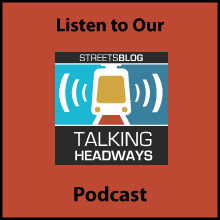The Overhead Wire Daily: Universal Poverty Reduction
October 15, 2024
A few discussions today about basic income in Oregon and St. Louis. St. Louis restarted a program that provides low income families $500 a month to help cover household bills but was stopped after a judge suspended the program from using public funds. The program has picked back up with donations from a private funder.
In Oregon, voters will be asked whether the state’s minimum tax on large companies should be increased to give every resident of the state a $750 tax rebate and for some residents with low incomes it could be a direct cash payment. But not everyone is a fan of the idea of universal basic income programs. A lot of elected officials including the governor have come out against it and other states have even written laws banning the practice.
For me the debate in my head over the benefits of the general idea goes back to a discussion I had with Scott Bernstein about poverty reduction where he talks about the three different ways we could go about it in the United States.
First we can invest in people’s education and job training that could help them earn more money. Scott says if people end up getting a dollar an hour or more because of it you may get $2,000 a year but some chunk of that would be reduced by taxes on that income.
Second, we could just buy down or subsidize the cost of large expenses like rent and housing or transportation whether that’s buying people a car or giving them a transit pass.
But a third way Scott says is that we could invest in a system that provides a package of services for people in poverty that reduces cost of living. In a city, if you look at people’s major expenditures, what could be done to bring down the cost of heating and cooling, transportation, child care, medical care, food and housing. If you provide those services to the tune of that theoretical $2,000 a year per person, you’re not only saving people money, they also don’t have to pay taxes on the increases in their bank accounts.
So I think that’s where the idea of universal basic income either conflicts or aligns with the stated goals of reduced poverty. On one hand you’re providing people with some money to buy down the costs of goods and services by increasing their income. But on the other hand you’re not improving the quality or value of those goods or services they are buying into and may just be perpetuating a bad existing system as is the case with a lot of transit service in the United States or housing provision.
It’s true that median incomes in the United States are much higher than a lot of other peer countries. But it’s also true that we require people to spend a LOT of money on things like transportation, health care, and housing. People talking about Red Vienna shouldn’t just mentioning the social housing, but also the robust transportation network and health care system that creates value by reducing an individual’s expenditures overall.
***
For this intro post and more news in your inbox every morning, sign up for a two week free trial of The Overhead Wire Daily, our popular newsletter established in 2006.







